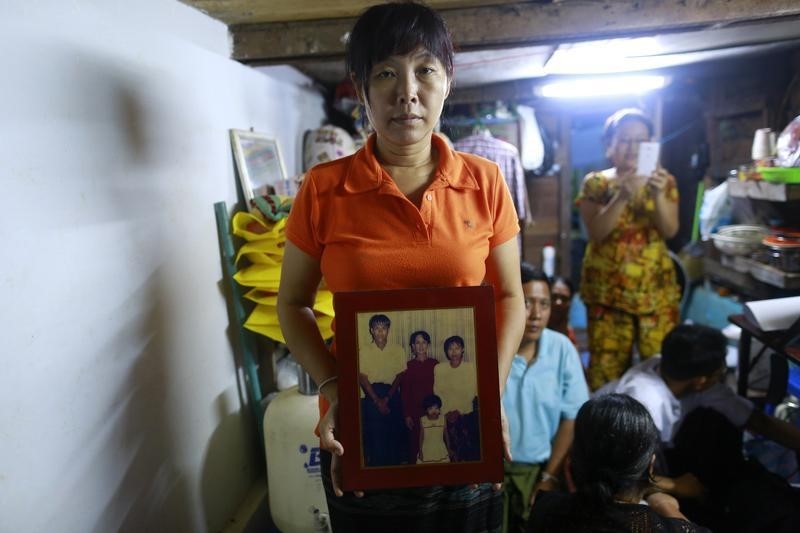By Hnin Yadana Zaw
YANGON (Reuters) - The wife of a Myanmar journalist who was killed in military custody said on Tuesday she hopes a civilian court can provide justice after an army court martial acquitted two soldiers accused in connection with the death.
Than Dar has called for a transparent investigation into the circumstances surrounding the death of her husband, Par Gyi, who she suspects was tortured.
The case triggered calls from the United States and rights groups in Myanmar and abroad for an inquiry. Myanmar's government ordered the National Human Rights Commission to investigate.
The commission in turn recommended that the case be tried in a civilian court.
"The judges from civilian court told me yesterday that there was no influence from the military court on them," she said. "So I think the court might bring justice in my husband's case."
Par Gyi was killed in army custody in October, five days after being arrested following a photo assignment documenting clashes between the military and the rebel Democratic Karen Benevolent Army, the Myanmar-based Assistance Association for Political Prisoners said.
The military said Par Gyi was detained as a member of an ethnic Karen rebel organisation and was shot when he tried to steal a gun from a soldier and escape.
A military court martial acquitted two guards, the Myanmar National Human Rights Commission said on Friday, without specifying the charge.
Than Dar testified on Monday in court in Kyeikmayaw, in eastern Mon state where Par Gyi's body was buried, about her actions following the discovery of her husband's death.
The nature of the court's investigation is unclear, as it has provided no information indicating if anyone will face charges and has not released a list of names to be called for testimony. Myanmar's semi-civilian government took power in 2011 after 49 years of military rule and has initiated wide-ranging reforms such as releasing political prisoners and lifting restrictions on media.

But the military-drafted constitution dictates significant political power for the military, including one quarter of the seats in parliament and key ministerial posts.